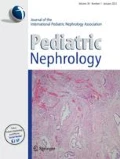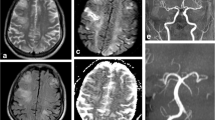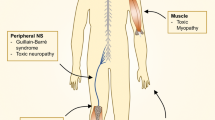Abstract
Neurological complications post transplant have been described with the use of calcineurin inhibitors. Although tacrolimus may be a better immunosuppressant than cyclosporine, its neurological side effects may be worse. Two children, living-related kidney transplant recipients, were treated with antibody induction, mycophenolate mofetil, prednisone, and tacrolimus. Soon after transplant, they each developed an encephalopathy, which when visualized by magnetic resonance imaging showed that it affected both white and grey matter of the brain. Although the encephalopathy was associated with the use of tacrolimus, there was a complete neurological recovery without cessation of the drug.
Similar content being viewed by others
Author information
Authors and Affiliations
Additional information
Received: 7 September 2000 / Revised: 2 January 2001 / Accepted: 30 January 2001
Rights and permissions
About this article
Cite this article
Parvex, P., Pinsk, M., Bell, L. et al. Reversible encephalopathy associated with tacrolimus in pediatric renal transplants. Pediatr Nephrol 16, 537–542 (2001). https://doi.org/10.1007/s004670100602
Issue Date:
DOI: https://doi.org/10.1007/s004670100602




